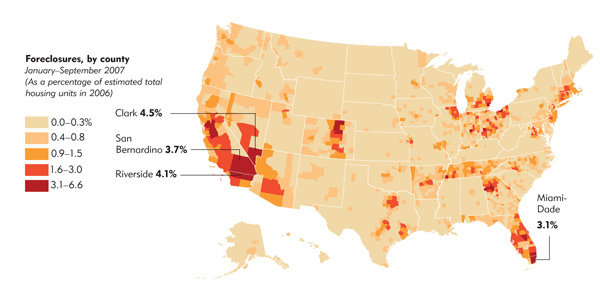JerichoHill
Bedrock of Knowledge
I'm an NFL fan, so I read with near religious zeal Gregg Easterbrooks TMQ column every Tuesday. Not just about sports, he waxes on politics, the economy, and astronomy, and hot cheerleaders. A great column. This week, he talked about the gold bubble. Hilarious!
After the tech-stocks bubble burst in 2000 and dragged down Wall Street, everyone claimed it was obvious all along that this would happen; though, mysteriously, most who claimed they knew all along nevertheless failed to sell before the market collapse. After the housing bubble burst in 2006, everyone claimed it was obvious all along that this would happen; though, mysteriously, most who claimed to have known all along failed to sell their real estate when the market was high or even merely to re-fi to a fixed-rate mortgage. With the benefit of hindsight, investors, economists and pundits always say bubbles were "obvious." Though mysteriously, they fail to notice at the time!
So what bubble is inflating right now, to be deemed an "obvious" bubble after many shirts are lost? Gold has been up for seven straight years, rose at 31 percent in 2007 and already has risen several percentage points in 2008. The metal is now selling for $863, versus about $600 in 2004, and the price rise appears unrelated to any increase in the underlying economic utility of the commodity. Gold has little functionality beyond jewelry and dental fillings -- almost all those who buy gold plan to hold their purchase and sell at a higher price, rather than use the gold to make something. That is, they are counting on market psychology to make their purchase more desirable, rather than adding value to it themselves. Just a word of advice: THIS IS THE CLASSIC PATTERN OF A BUBBLE! Tulip bulbs, Web start-up stock, nutria, Florida condos: If the price is rising fast and buyers are jumping in solely with the goal of flipping, a bubble is in progress. Last week, gold futures rose to their highest level since January 1980, which is when the last gold bubble burst. Don't say you weren't warned! But after the gold bubble bursts, do feel free to say this was obvious all along.
Gregg Easterbrook, Tuesday Morning Quarterback
After the tech-stocks bubble burst in 2000 and dragged down Wall Street, everyone claimed it was obvious all along that this would happen; though, mysteriously, most who claimed they knew all along nevertheless failed to sell before the market collapse. After the housing bubble burst in 2006, everyone claimed it was obvious all along that this would happen; though, mysteriously, most who claimed to have known all along failed to sell their real estate when the market was high or even merely to re-fi to a fixed-rate mortgage. With the benefit of hindsight, investors, economists and pundits always say bubbles were "obvious." Though mysteriously, they fail to notice at the time!
So what bubble is inflating right now, to be deemed an "obvious" bubble after many shirts are lost? Gold has been up for seven straight years, rose at 31 percent in 2007 and already has risen several percentage points in 2008. The metal is now selling for $863, versus about $600 in 2004, and the price rise appears unrelated to any increase in the underlying economic utility of the commodity. Gold has little functionality beyond jewelry and dental fillings -- almost all those who buy gold plan to hold their purchase and sell at a higher price, rather than use the gold to make something. That is, they are counting on market psychology to make their purchase more desirable, rather than adding value to it themselves. Just a word of advice: THIS IS THE CLASSIC PATTERN OF A BUBBLE! Tulip bulbs, Web start-up stock, nutria, Florida condos: If the price is rising fast and buyers are jumping in solely with the goal of flipping, a bubble is in progress. Last week, gold futures rose to their highest level since January 1980, which is when the last gold bubble burst. Don't say you weren't warned! But after the gold bubble bursts, do feel free to say this was obvious all along.
Gregg Easterbrook, Tuesday Morning Quarterback




 My moms house is worth 310 right now and she bought it for 130 5 years ago. Everyone seemed to pull money out of their homes at just the wrong time because the prices adjusted themselves fast
My moms house is worth 310 right now and she bought it for 130 5 years ago. Everyone seemed to pull money out of their homes at just the wrong time because the prices adjusted themselves fast